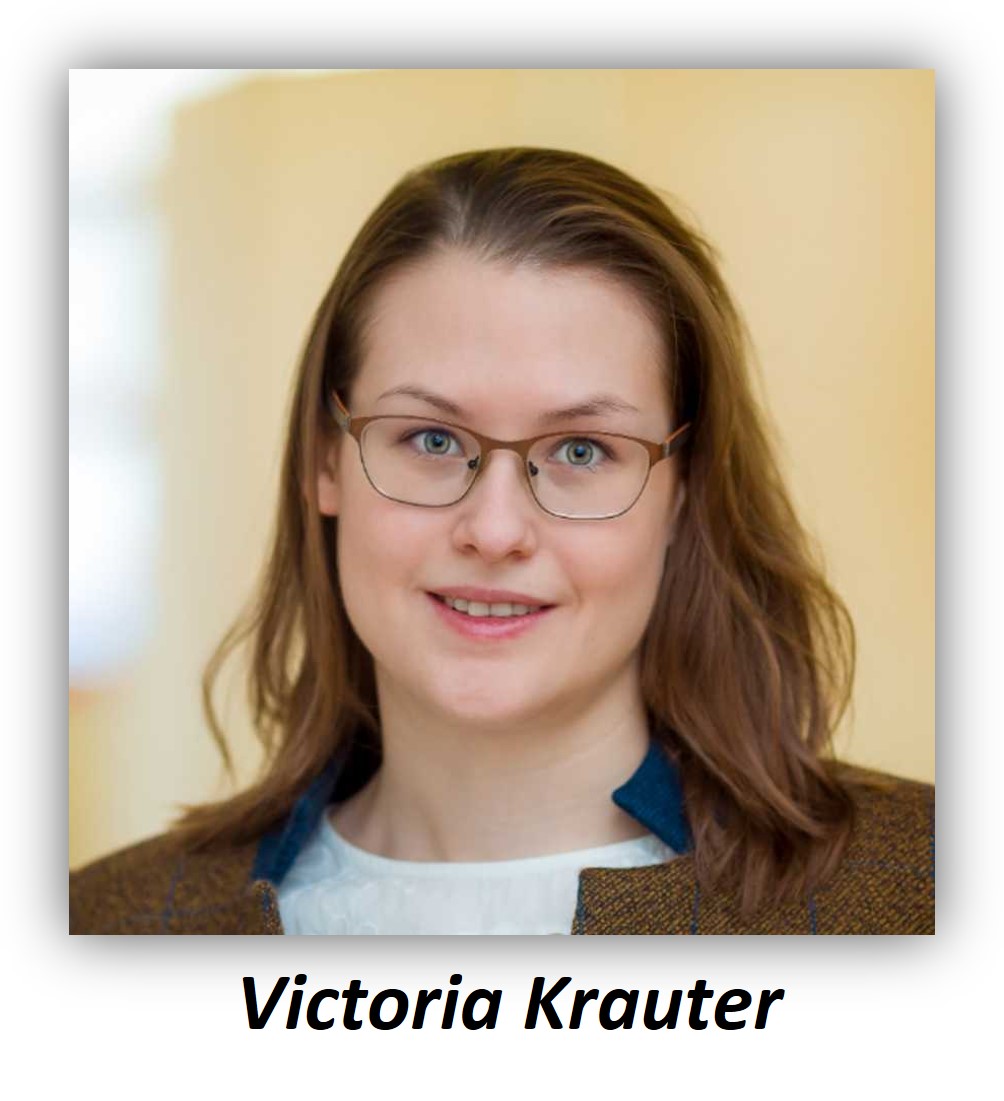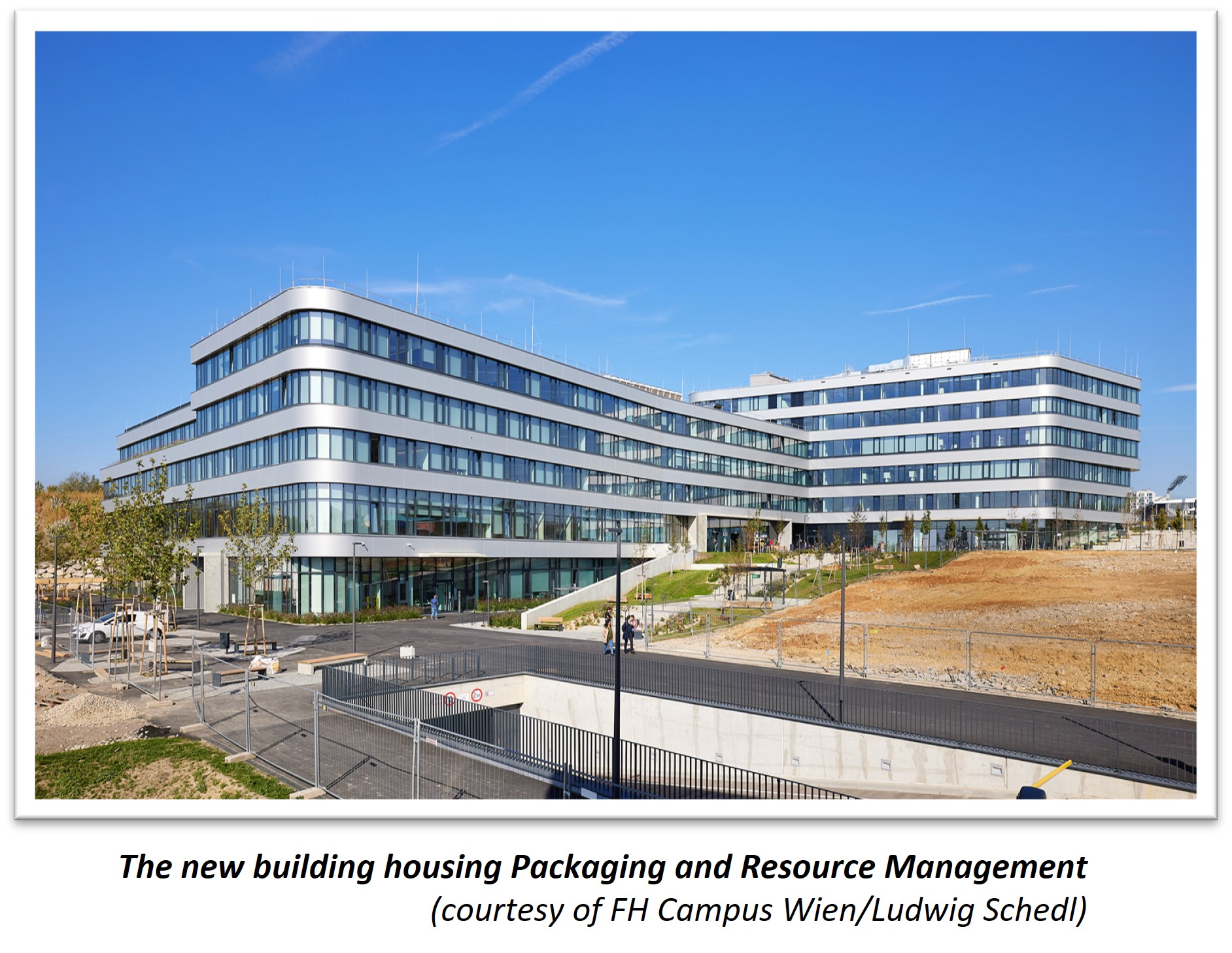News Items - International Association of Packaging Research Institutes
| Varied learning and research at FH Campus Wien, Austria Based in the Austrian capital, FH Campus Wien University of Applied Sciences is the largest university of its type in the country. The Packaging and Resource Management section, part of the Department of Applied Life Sciences, was created in 2015, and employs 30 staff members in teaching and R&D activities. It offers two part-time bachelor’s degree programs: Sustainable Packaging Technology and Sustainable Resource Management, both taught in German. It also offers one part-time international master’s program, taught in English: Packaging Technology and Sustainability. As well as these degree programs, FH Campus Academy offers a wide range of courses and seminars relating to packaging and sustainability, which can be booked by those not enrolled at the university.  Victoria Krauter, head of the Competence Centre for Future Oriented and Sustainable Packaging Solutions, explains that the Competence Centre, along with the entire Packaging and Resource Management section, organises its research into specialist groups investigating everything from the safety of materials to guidelines on sustainable packaging design. Victoria Krauter, head of the Competence Centre for Future Oriented and Sustainable Packaging Solutions, explains that the Competence Centre, along with the entire Packaging and Resource Management section, organises its research into specialist groups investigating everything from the safety of materials to guidelines on sustainable packaging design.“The research activities help not only to create a more sustainable future, but also to ensure that state-of-the-art knowledge and latest insights can be passed on to the students,” says Krauter. Research was given an additional boost by the 2022 move to a new building on the main campus. “With the relocation to the new site, the laboratory facilities for research purposes were upgraded and further equipped,” says Krauter. FH Campus Wien research teams publish regularly on themes relating to both the sustainability and safety of packaging.  The Packaging and Resource Management section is currently involved in over 15 research projects, all of which are being worked on in close collaboration with industry partners. Just a handful of examples will serve to demonstrate the breadth of focus in research. The Packaging and Resource Management section is currently involved in over 15 research projects, all of which are being worked on in close collaboration with industry partners. Just a handful of examples will serve to demonstrate the breadth of focus in research.The Migratox project aims to consolidate knowledge on testing for non-intentionally added substances (NIAS) in food-contact packaging (see separate news story), particularly in relation to recyclates. “The project is focusing on critical contaminants such as endocrine disruptors and mutagenic substances,” says Krauter. “Testing strategies are also being developed to detect NIAS.” SafeCycle is working on identifying sources of contamination in recycled plastics using DNA-reactive substances, which may be detected in recycled polyolefins and polystyrenes. One outcome of the project will be a published catalogue of measures with clear recommendations for the prevention and investigation of each class of contaminant, according to FH Campus Wien. The team involved in the Reflex project aims to develop recyclable polyolefin-based food packaging films in three oxygen barrier categories. The idea is that, by making the films more readily identifiable, improved sorting will lead to higher-quality recycling. PET2Pack, on the other hand, focuses on establishing a closed-loop system for rigid PET packaging in Austria. The research project involves entire value chains for both food and non-food packaging. Biopolymers also feature in research. The MALVE team aims to develop a biodegradable test specimen of food packaging based on polyhydroxyalkanoate (PHA) material with an Ormocer barrier coating. The plan is to develop test procedures for evaluating specimens. “Based on these findings, the test specimens will be optimized via a cascade process to achieve the necessary packaging properties,” Krauter explains. Not all of FH Campus Wien’s projects rely exclusively on experimental, lab-based research. The Circul-A-Bility COST (European Co-operation in Science and Technology) network project is positioned as a rethinking of packaging for future circular and sustainable food supply chains. It includes a range of activities, from conferences and training schools to short-duration scientific missions and other co-operative research activities. Krauter recognises the value of working with an association like IAPRI that allows for the sharing of experience and research results at a global level. “IAPRI is an ideal way to connect people internationally and build networks for further research activities,” she says. Published: 03/30/23 |